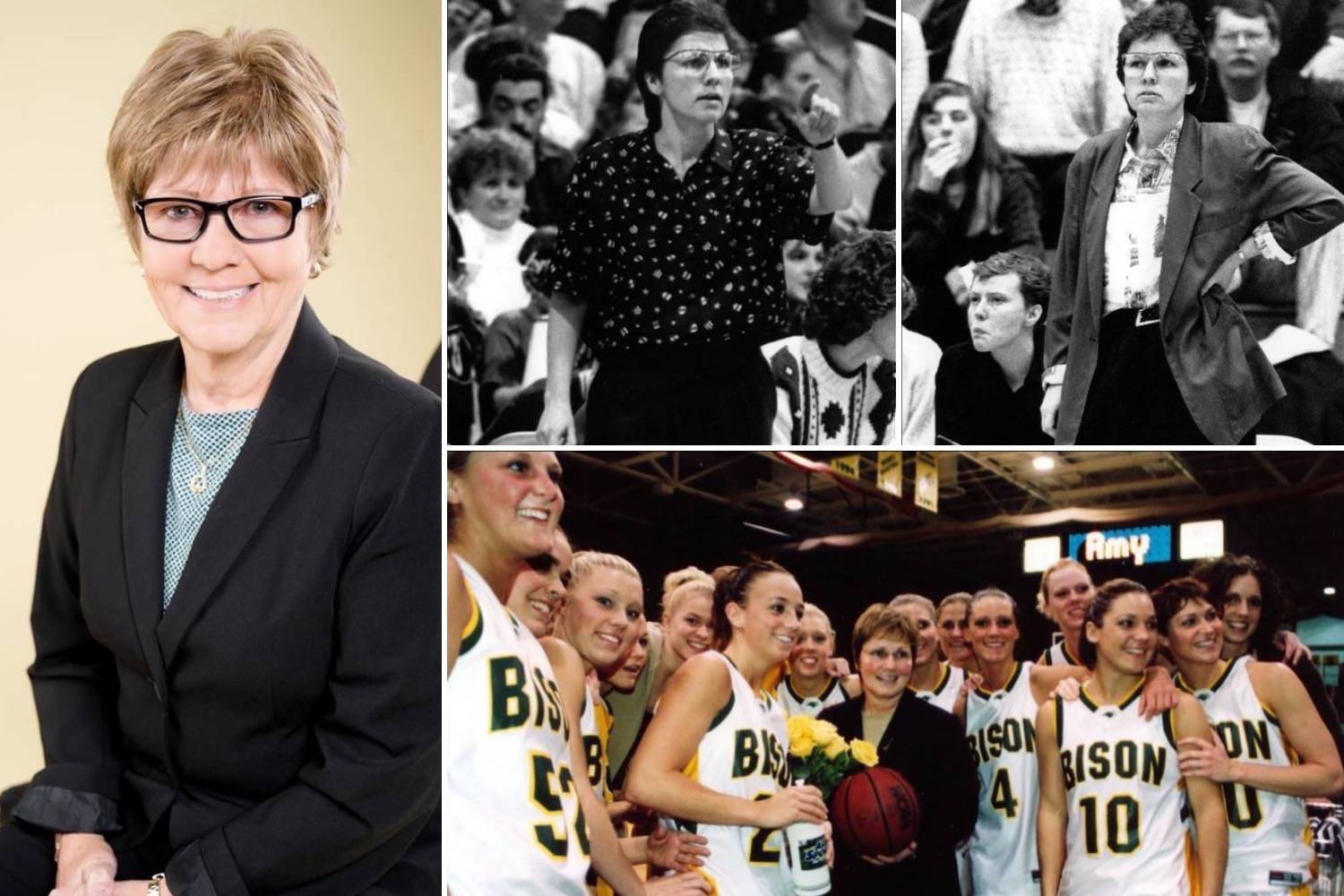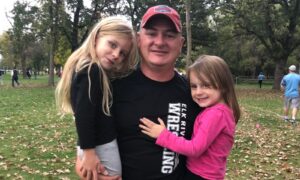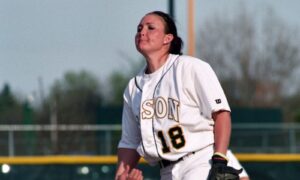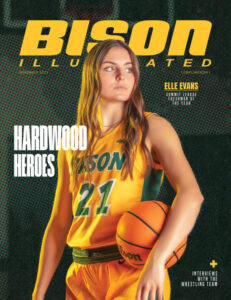Feature Photo by Hillary Ehlen
Boilermaker Raised, Bison Forged, Dragon Etched
Iconic women’s basketball coach Amy Ruley has thrived in every venture she has taken on.
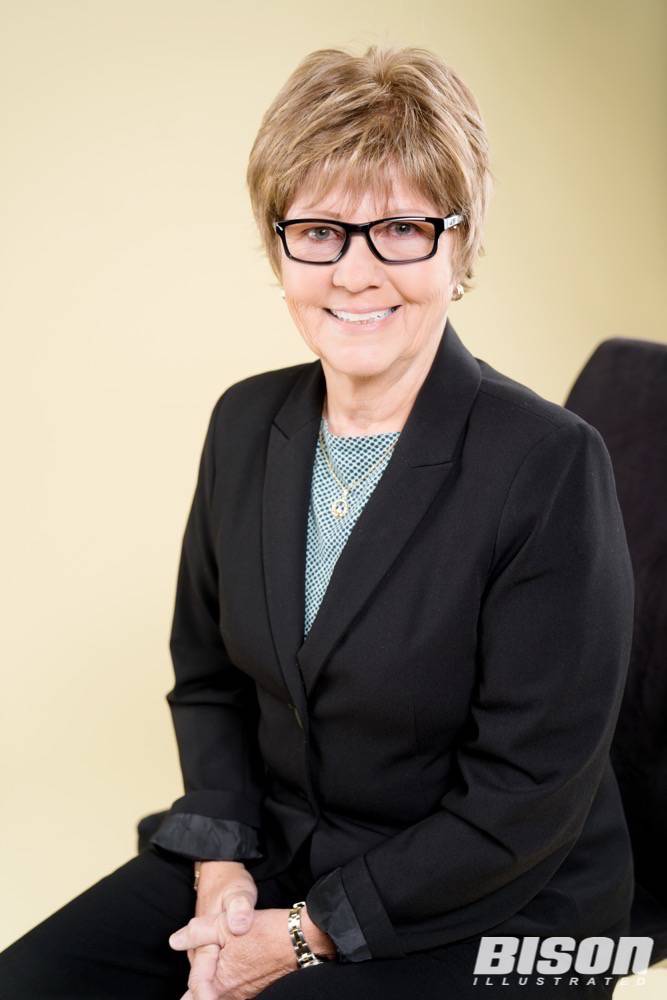
Using the word legendary is often cliché in the realm of sports. A buzzword used to describe an overly successful individual in their sport of choice. While former women’s basketball coach Amy Ruley is a legend in the truest form of the word, she is far more. I often quantify it as so: If a Mount Rushmore for Bison basketball was built, she would be the first face they sculpt.
With all due respect to Ben Woodside, Kasey Morlock or any other successful athlete or coach, Ruley gets sculpted first. Without hesitation or second thought, she is the first name on the list. Not just because of her success as a coach, but her impact on her teams and what she did for the university after her coaching days. What she has done is iconic, not legendary, and it may never be paralleled.
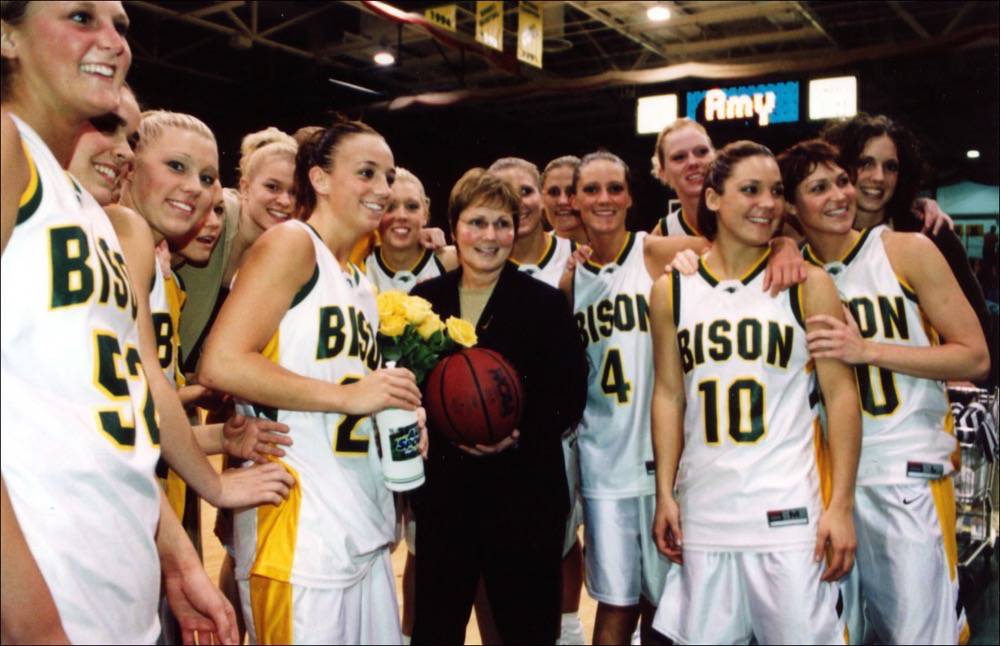
Ruley is not from North Dakota. It comes as no surprise that Ruley was born and raised in the most famous of basketball states, Indiana. Attending Purdue University in the mid to late-70s, Ruley was one of the pioneers of Boilermaker women’s basketball. In fact, she scored the first basket in Purdue women’s basketball history. In a time where women’s athletics was growing rapidly, Ruley used her athletic and academic experiences at Purdue to shape the rest of her life.
“I thoroughly enjoyed my time at Purdue, both academically and athletically and I was there at a time where women’s athletics were just kind of coming into their own. From my freshman year, where everyone tried out to make the team, to my sophomore year which was actually our first year as an intercollegiate team. The question was, what are we going to do with women’s athletics? Because prior to that, it wasn’t really run by the athletics department,” Ruley said of the Purdue women’s team. “They decided they were going to have to do something, so from that point on, the athletics department actually was administering women’s sports. It went from the Women’s Intercollegiate Sports Organization out of a co-rec to the actual athletic department. Having an opportunity to come in at that time and have my sophomore year be the first year we were an intercollegiate team. That’s where that first basket opportunity came, it’s kind of tongue in cheek. The good thing is that it will never be broken. At any rate, I saw the athletics grow at a good rate during that time. Then my academic preparation too, I really enjoyed the major I was in (physical education) and later psychology and sociology of sports, so it all kind of came together. So the preparation I had through high school and college, set me up for NDSU.”
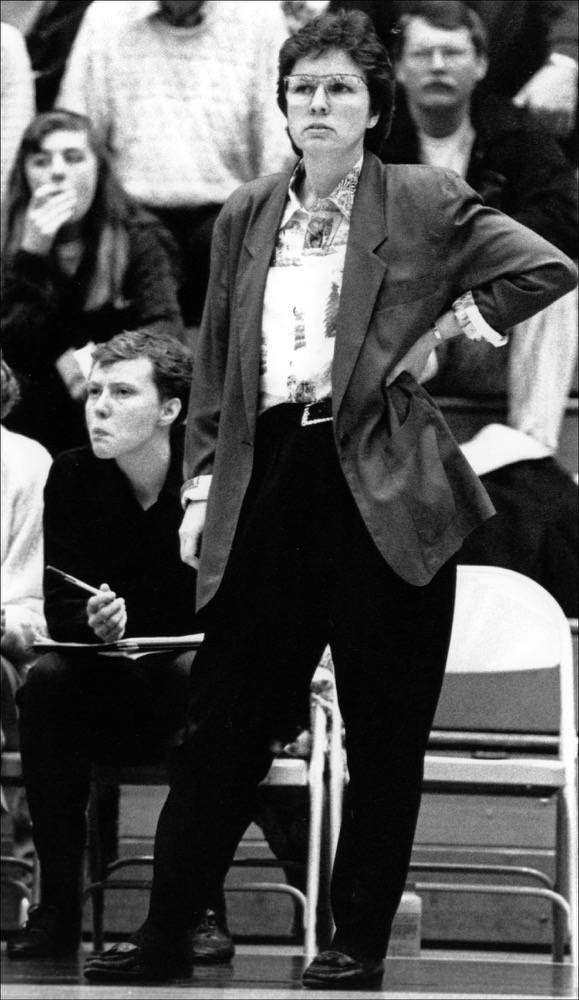
After graduating from Purdue in 1978, Ruley was tasked with finding what was next. She visited NDSU and was immediately hooked. “It was like a little Purdue. It was a land-grant institution, strong in ag, a lot of the same academic areas, a little more conservative, it was a great transition,” she said. “To come into a program where I believe I was the first full-time head coach in women’s basketball. We all taught too, it was 50/50 teaching and coaching, which I appreciate because I was trained to teach.”
What was perhaps more remarkable was the fact that Ruley was only 23-years-old, fresh out of college. In today’s collegiate landscape, that is unheard of across every sport. For Ruley, her youth and inexperience at the time led to some early challenges, which were no doubt expected. “I think there was a little bit of respect from my past experience and where I had come from,” she said. “They kind of gave me the benefit of the doubt and the teaching part too, which I really enjoyed. Good coaches are teachers, that’s what you do when you coach is teach. There were definitely challenges throughout.”
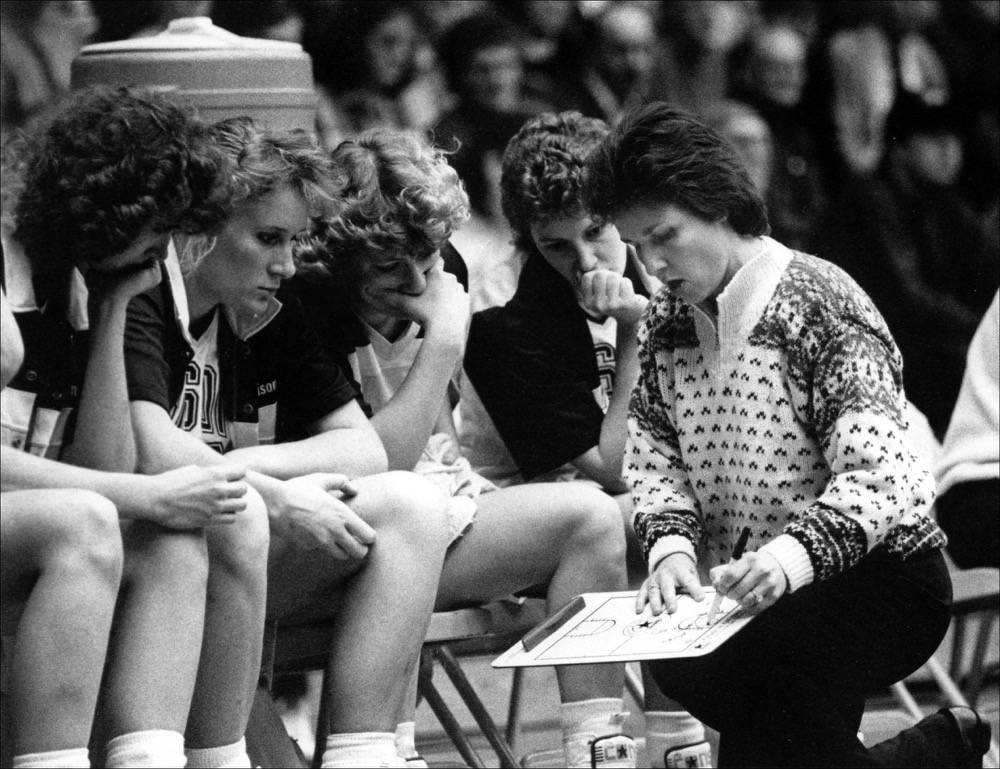
Those challenges were created in large part due to the previous history of women’s athletics at the collegiate level. In relative terms, women’s athletics did not have a long history book compared to men’s sports. At NDSU, Ruley was fortunate enough to have great male coaches around her, but things were still difficult at times. “To move from the AIW to Division II and also it was a time when women’s athletics was just coming onto the scene. For a lot of guys, they hadn’t had to worry about that,” she said. “The Bison Sports Arena was not built yet for women’s athletics, so there were challenges. To even get a space in the building was difficult. The whole building was retrofitted, so we took what was basically a custodial closet that had plumbing and had space under the bleachers for storage and that became our locker room. That was just where things were happening as far as facilities at that time, they just weren’t built for women’s occupancy. You kind of had to fight for practice time and to have the same opportunities as the men.”
Despite the constant struggles, Ruley’s teams thrived on the floor. As time wore on, women’s basketball (and women’s sports in general) began to gain momentum. By the time Ruley retired from coaching in 2008, she had won a staggering 671 games (to 198 losses), 10 North Central Conference titles, made nine Final Fours and won five national championships. As is the case with Bison football, sustaining that success was always challenging for Ruley and the women’s basketball staff.
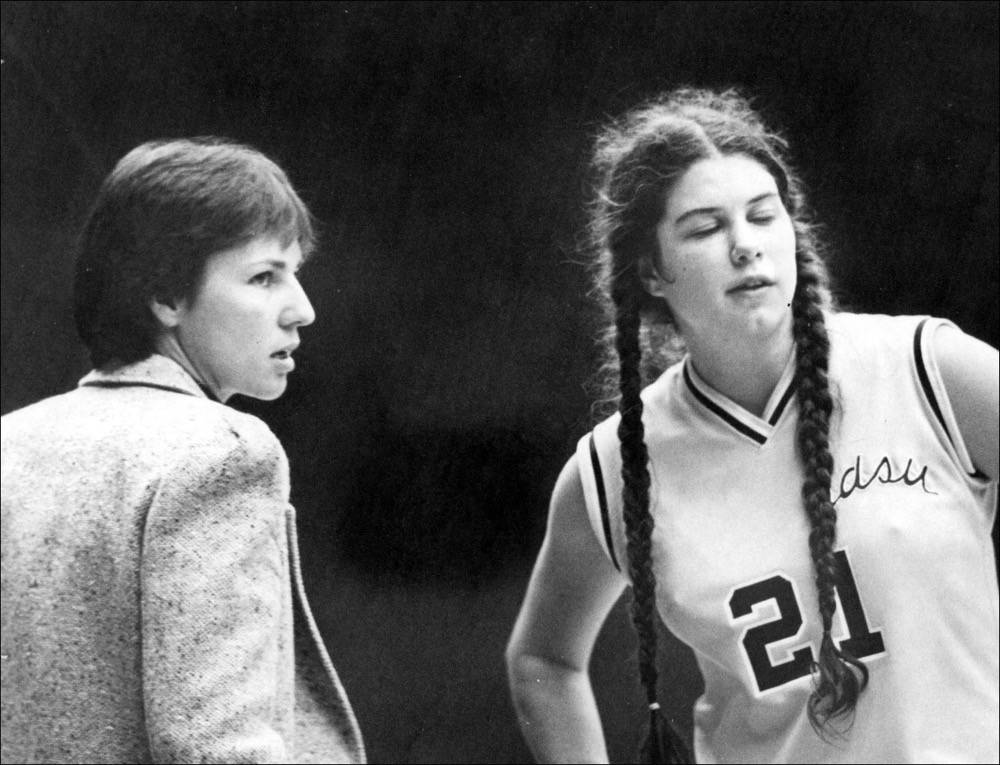
“It was a group effort. I think the whole team, we had such great support throughout the community and the region and even statewide that recruiting was a little easier. We could fall back on the successes we had and there is kind of a synergy that comes with successful programs,” she said. “As a student-athlete, to be working next to another All-American or an All-Conference player, that success kind of breeds success. When you have that flowing through your student-athlete population and a community that supports you and a central administration that’s supportive, it was easier to keep it going than to let it drop. Then recruiting became easier. We could recruit athletes that the University of Minnesota was recruiting, but they would see the size of audiences we played in front of, the media exposure, we had Sports Illustrated doing articles. That kind of exposure that wasn’t happening with some of the bigger programs in the region. So we were able to recruit beyond what you would think.”
That changed when North Dakota State moved to Division I competition. While the past success was still there, it made recruiting a little more challenging for Ruley and her staff. “We had to change our strategy because prior to that, I could tell a recruit that if she stayed with us for four years, she’d play in a Final Four,” she said. “That was a huge carat. We had to change to ‘hey you’re going to be our first Division I athlete’ and that they’ll be pioneers to take us into the next level of competition.”
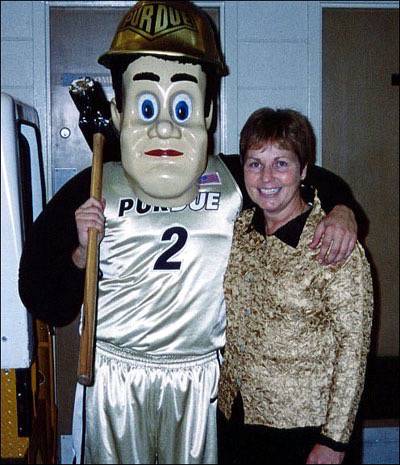
Regardless of the transition, Ruley’s teams were still wildly competitive despite being ineligible for postseason competition. The Bison won at least 16 games each year between 2004 and 2008 when Ruley retired. Along with that, they never had a below .500 record and won 20 games in 2006-07.
After successfully transitioning the program to the highest level of collegiate athletics, Ruley retired from coaching in 2008. However, she was not yet done with her time at NDSU. She immediately stepped into a development role first with NDSU athletics and then with the school’s College of Health Professions. Much of her job in those departments was to fundraise. In the case of NDSU athletics, Ruley was on the ground floor of fundraising for what would become the Sanford Health Athletic Complex.
“That opportunity to fundraise, knowing what we were going to do with facilities, I knew it was going to be a challenge. I already had a lot of relationships within the community, I mean, you know people after all those years,” she said. “It all felt like a good thing and so I worked on that for a while. Then I had a chance to work with the College of Health Professions and they were going to build their facility and I was a part of that planning.”
“We had Sports Illustrated doing articles. That kind of exposure that wasn’t happening with some of the bigger programs in the region.”
It was in 2017 when Ruley received a phone call from some friends across the river at Minnesota State University Moorhead. The question? If she would become a Dragon and be on the development side of MSUM athletics. “I thought I’d end my career with NDSU and then this phone call came,” she said. “You kind of have to say ‘what is the next challenge’ and if there is a place I could make a bigger impact.”
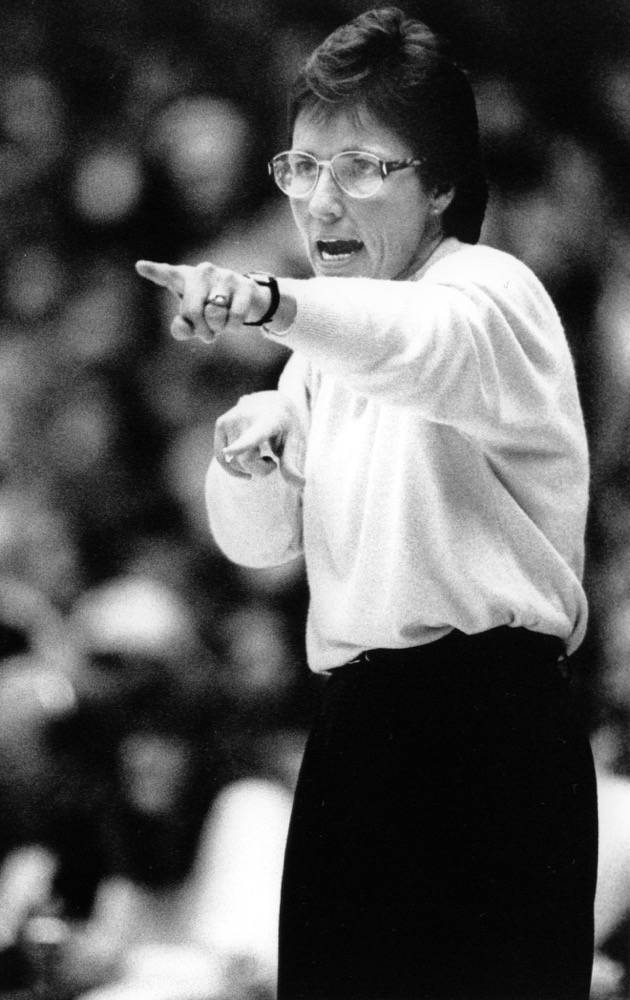
So, Ruley moved over to MSUM athletics and now she sees some parity within the school’s athletics department and NDSU. “So now it’s back to kind of where we were at NDSU. We’re Division II, we were needing facilities, we were trying to grow our program,” she said. ”People I already knew and with some of our coaches, like Coach Laqua, who I really admired and felt good about and Kris Nelson and I watched him wrestle and lots of good people. It felt like a good opportunity to challenge myself and stretch myself and they had so many shared relationships within the community too, so it’s not like it was a huge move.”
Along with that, Ruley had long-admired MSUM President Anne Blackhurst. “I had been kind of admiring what they’d been doing there. I think we were all looking across the river and wondering what was going on over there,” she said. “It starts with President Blackhurst, I think she’s phenomenal. It’s great to see a woman who can come into those leadership roles and be so effective.”
“It’s being a good person, heart, grit, humility are part of the mantra at MSUM. I think that was and is part of NDSU, too.”
Many of Ruley’s relationships carried over to her new position. Long-time women’s basketball coach Karla Nelson was just one of the many who Ruley had a previous relationship with. Ruley says they frequently talk strategy with one another. “Oh, we have a blast, we talk basketball and it’s been fun to watch,” she said. “Her style, she likes transition basketball. It’s been fun to be able to x and o with her and I knew her as a player, so some of those relationships are just fun to continue.”
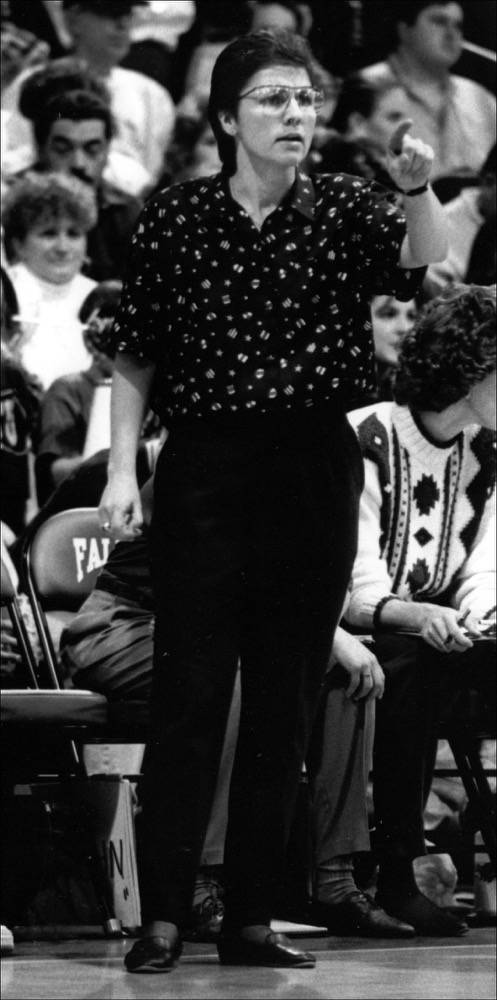
She also referenced the direct NDSU connection within MSUM coaches. Wrestling coach Kris Nelson was a national champion for the Bison and was a recent inductee into the Bison Athletic Hall of Fame. Head football coach Steve Laqua also played and was an assistant coach at NDSU. Both coaches were athletes when Ruley was the head women’s basketball coach.
Because of this, Ruley sees some overlap in Bison Pride and Dragon Pride. This is a direct result of former NDSU greats coming on at MSUM. “I think it’s the team first. From President Blackhurst, throughout our campus, throughout our coaches, it’s team,” she said. “It’s being a good person, heart, grit, humility are part of the mantra at MSUM. I think that was and is part of NDSU too. You work hard. A friend of mine said we’re proud about being humble, but it’s the truth. There is kind of that theme of we never get too high or too low, there’s just kind of consistency.”
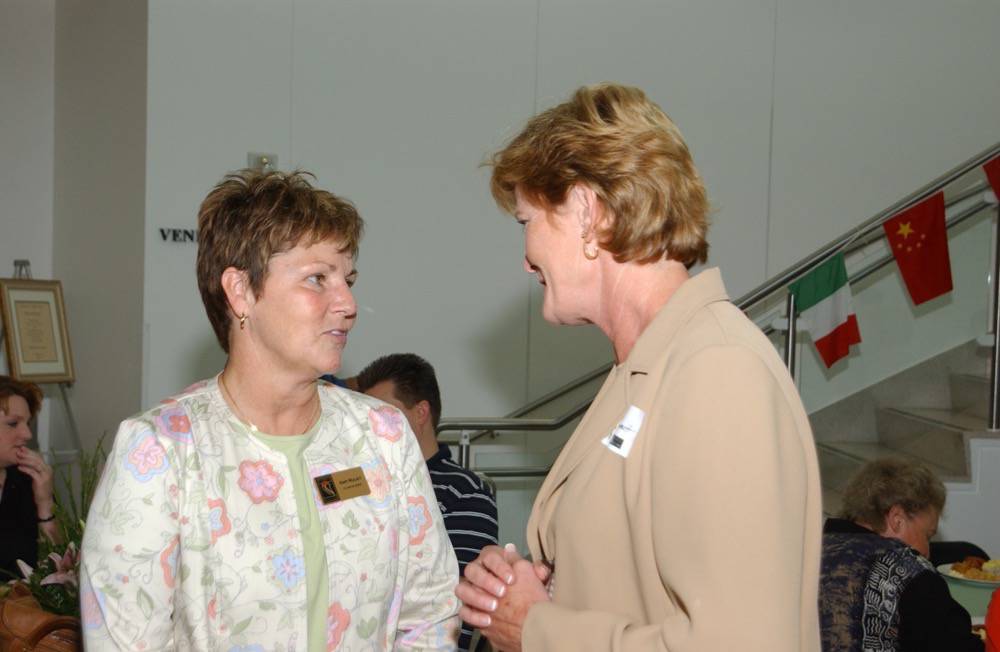
Amy Ruley is a Bison basketball icon. That is not cliché nor is it far-fetched. It is the truth. She is easily the most influential figure in NDSU men’s or women’s basketball history. That should come as no surprise given her success as a head coach in Fargo. Not only that, but she has thrived at all levels, as a student-athlete at Purdue, a coach at NDSU and now in her position at MSUM, she has succeeded. It takes a special kind of person to be good at everything you do and Amy Ruley is that special person.

